ADOLESCENT HEALTH AND YOUTH DEVELOPMENT
Our Mission
Ensuring young people most vulnerable to health risks such as poor dietary choices, inadequate physical activity, physical and emotional abuse, substance abuse, and gang involvement have access to free, medically accurate, age-appropriate, evidence-based risk reduction education and adult preparation programs.
GOALS OF THE PROGRAM
Help support adolescents in their academic and social growth, promote a positive school climate and culture, encourage respect for diversity and take a proactive role in nurturing students by providing them with the knowledge to make healthy choices through education, mentoring, recreation and skill building, understanding that all young people need support, guidance, and opportunities.
At-risk behaviors are identified as (but not limited to):
- School attendance issues
- School academic issues
- Grade retention
- Violence involvement (Sexual/Gangs/Bullying)
- Disciplinary issues
- Substance Abuse
COMPONENTS OF THE PROGRAM
Risk Reduction Education
Provide medically accurate, age-appropriate, and evidence-based designs to help adolescents develop the skills and motivation necessary to reduce risk-related behaviors.
Youth Development Activities
In addition to risk reduction education, the program offers services to prepare young people for adulthood by implementing activities that address: Healthy Relationships, Positive Adolescent Development, Healthy Life Skills, Career Preparation, Financial Literacy, Leadership Development Communication and Decision-Making These activities build self-esteem and confidence and encourage youth to assess themselves and set developmental goals.
Adolescent Health Youth Development Student Council
Adolescent Health Youth Development Youth Advisory Council (YAC) is a selected group of students who are committed to affecting positive change within their school environment. Providing youth an opportunity to develop skills that empower them to make a positive change and influence peer attitudes and behaviors meeting weekly dedicated to creating and supporting healthy, safe, and welcoming schools.
Parent Engagement & Empowerment
We provide resources that we hope will make it easier for parents to understand their positive role in successfully engaging their children in ‘tough talks. Healthy Relationships, and Commercial Sexual Exploitation of Children (CSEC).
Case Management
AHYD Case Managers work with school personnel to identify and address social factors contributing to school failure. These factors include but are not limited to: connecting families to resources in the school and the community, keeping students in the classroom and engaged in the learning process, and linking them to or coordinating with youth-serving agencies for referrals and support services Referring students to appropriate supportive services, including housing, educational, vocational, comprehensive medical, mental, and dental services to secure high-quality, private practice services, including specialist, vision, and orthodontic care.
Mental Health
Partnering with View Point Health to provide the Georgia APEX program within AHYD Teen Centers increases timely identification and treatment of adolescents struggling with mental health, substance use, and emotional problems. View Point Health provides mental health professionals onsite at high school through the Georgia APEX Project. In corporation with school staff, View Points’ therapists assess and identify a student’s mental health needs and determine how best to meet their individual needs. Appointments can be scheduled during the school day, before or after school, or at home if desired. Services include Onsite mental health professionals, Individual and group counseling, Community Support Services, Psychiatric and nursing services, Linkage and referral to other services, and Training and support for school personnel.
Public Awareness
Monthly public awareness events facilitated around adolescent health-related issues/topics. All events are accessible to the entire school population during the student’s lunch periods in the commons disseminating information on adolescent health-related issues/topics listed below:
- Suicide
- Drugs and Alcohol
- Healthy Eating
- Puberty and Hygiene
- Bullying
- STDs/HIV Prevention
- Healthy Relationships & Teen Dating Violence
- Smoking/Tobacco
Professional Training
Plan and provide training opportunities to youth-serving professionals, parents, community members, or youth. Facilitate training on Adolescent Friendly Practices utilizing the Spark Training Components: Youth Friendliness, Nonverbal Communication, Adolescent Brain Development, and Being an Askable Adult.




